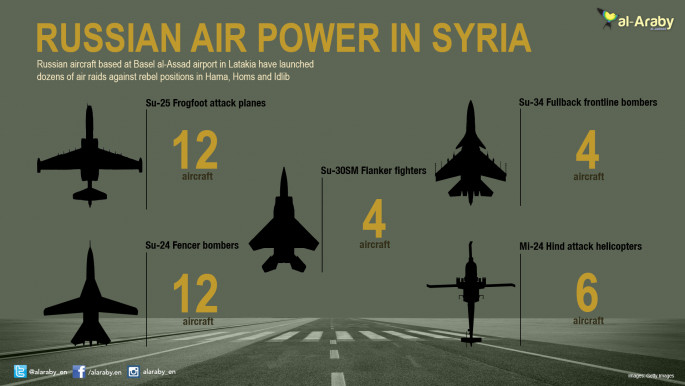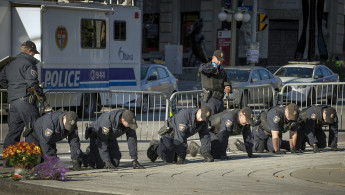Canada withdrawing fighter jets from Iraq and Syria
Canada's prime minister-elect Justin Trudeau said Tuesday he told US President Barack Obama that Canadian fighter jets would withdraw from fighting the Islamic State group (IS, formerly ISIS/ISIL) in Iraq and Syria.
But he gave no timeline.
"About an hour ago I spoke with President Obama," Trudeau told a press conference.
While Canada remains "a strong member of the coalition against ISIL," Trudeau said he made clear to the US leader "the commitments I have made around ending the combat mission."
Canada last year deployed CF-18 fighter jets to the region until March 2016, as well as about 70 special forces troops to train Kurds in northern Iraq.
During the campaign, Trudeau pledged to bring home the fighter jets and end its combat mission. But he vowed to keep military trainers in place.
| Canada last year deployed fighter jets to the region and 70 special forces troops to train Kurds in northern Iraq |
His new Liberal government will be "moving forward with our campaign commitments in a responsible fashion," Trudeau said.
"We want to ensure that the transition is done in an orderly fashion."
The son of former prime minister Pierre Trudeau won a surprise majority in Monday's national election, a victory that launched the party from a decade in opposition back into power.
It was also a sound defeat for outgoing Conservative prime minister Stephen Harper, who has been in power since 2006. Harper was closely aligned with US foreign policy.
Russia and US reach agreement on Syria operations
Washington and Moscow have reached an agreement on the rules for aircraft operations over Syria.
A Russian defence official in Moscow said the "memorandum of understanding" suggests a potential for US-Russian counterterrorism cooperation, but US officials said it was a narrow arrangement that does not lessen Washington's concern about the Russian military campaign.
There is no plan to establish zones of cooperation in the parallel air campaigns or to share intelligence or target information in Syria, Pentagon spokesman Peter Cook said.
The Pentagon has cited several instances when Russian aircraft came too close to US warplanes over Syria in recent weeks.
| The Pentagon has cited several instances when Russian aircraft came too close to US warplanes over Syria |
More broadly, Washington has complained that instead of hitting IS fighters, Russian airstrikes are mostly targeting rebel forces fighting the Syrian government.
Russia also deployed ground troops and land-based weaponry, including multiple-launch rocket systems, in support of the Syrian government.
The two sides also agreed to establish a "communication line on the ground" as a backup of military-to-military communication. A US-Russia working group will be formed to deal with any implementation issues that arise, he added.
The United States has been bombing IS targets in Syria since September 2014; the Russian air campaign began less than one month ago.
In Moscow, Russian Deputy Defense Minister Anatoly Antonov said in a statement carried by Russian news agencies that signing the memorandum was a positive step that has "important practical meaning."
"The Americans have promised to get the agreed rules to all participants of the anti-IS coalition they lead, so that their pilots proceed from those agreements," he said, referring to the US coalition that includes Australia, Bahrain, Canada, France, Jordan, Saudi Arabia, Turkey and the United Arab Emirates.
 |
Iraq 'promises' not to request Russian strikes
Meanwhile, Marine Gen. Joseph Dunford, chairman of the Joint Chiefs of Staff, said the Iraqis promised they will not request any Russian airstrikes or support for the fight against IS militants.
| "It would make it very difficult for us to provide support if the Russians were here conducting operations as well" - US Gen. Joseph Dunford |
Shortly after leaving Baghdad, Dunford told reporters traveling with him that he had laid out a choice when he met with Iraqi Prime Minister Haider al-Abadi and Defence Minister Khaled al-Obeidi earlier Tuesday.
"I said it would make it very difficult for us to be able to provide the kind of support you need if the Russians were here conducting operations as well," Dunford said. "We can't conduct operations if the Russians were operating in Iraq right now."
He said there was "angst" in the U.S. when reports surfaced that al-Abadi had said he would welcome Russian airstrikes in Iraq. The U.S., Dunford said, "can't have a relationship right now with Russia in the context of Iraq."





 Follow the Middle East's top stories in English at The New Arab on Google News
Follow the Middle East's top stories in English at The New Arab on Google News
![The UAE is widely suspected of arming the RSF militia [Getty]](/sites/default/files/styles/image_330x185/public/2024-11/GettyImages-472529908.jpg?h=69f2b9d0&itok=Yauw3YTG)
![Netanyahu furiously denounced the ICC [Getty]](/sites/default/files/styles/image_330x185/public/2024-11/GettyImages-2169352575.jpg?h=199d8c1f&itok=-vRiruf5)
![Both Hamas and the Palestinian Authority welcomed the ICC arrest warrants [Getty]](/sites/default/files/styles/image_330x185/public/2024-11/GettyImages-2178351173.jpg?h=199d8c1f&itok=TV858iVg)